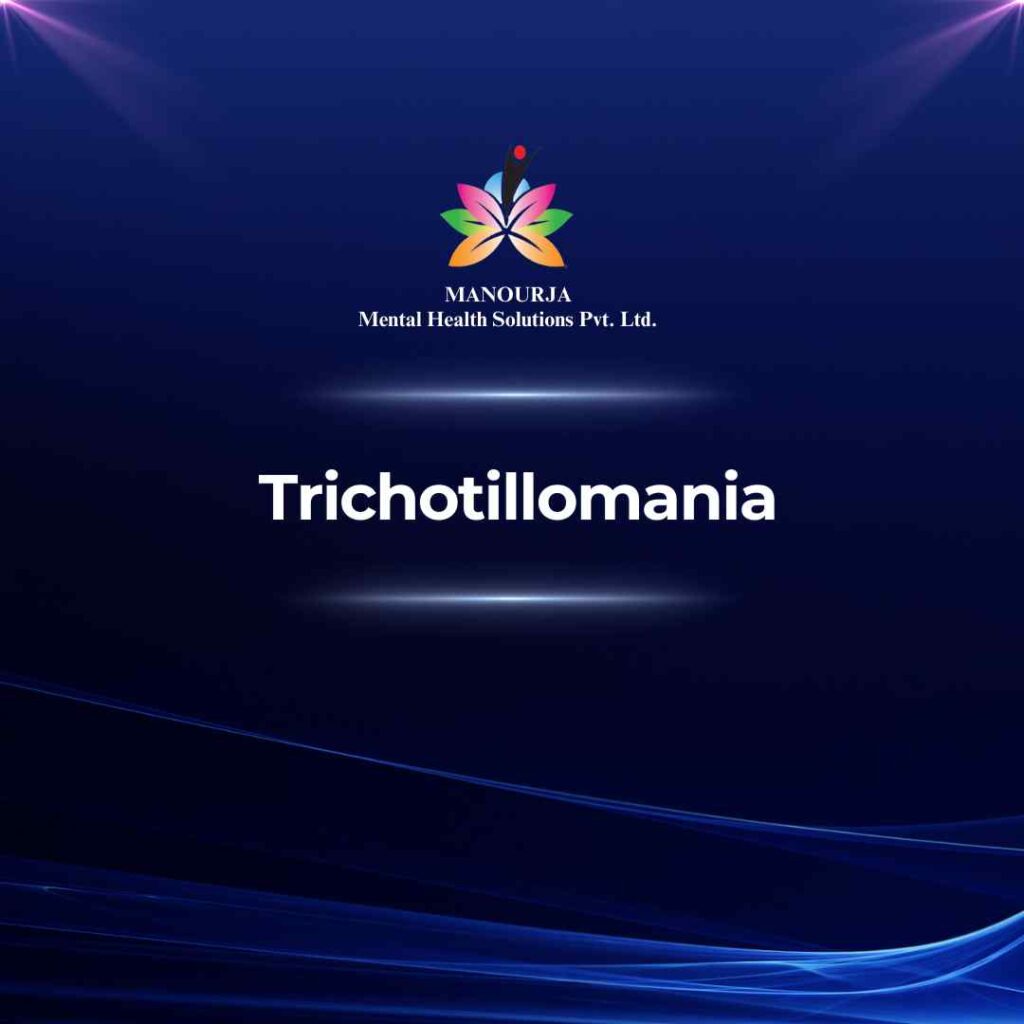Trichotillomania

“Trichotillomania” is a mental health disorder characterized by recurrent, irresistible urges to pull out hair from the scalp, eyebrows, or other areas of the body, resulting in noticeable hair loss. It falls under the category of obsessive-compulsive and related disorders in the Diagnostic and Statistical Manual of Mental Disorders (DSM-5). Here’s a detailed description:
Trichotillomania, often referred to as hair-pulling disorder, involves the repetitive pulling out of one’s own hair. This behavior may lead to significant distress or impairment in daily functioning. Individuals with trichotillomania may experience a range of emotions, including tension before pulling out hair and relief or gratification afterward.
Trichotillomania as a Sign and Symptom of Mental Illness
Trichotillomania is considered a specific mental health disorder. It is classified within the category of obsessive-compulsive and related disorders in the DSM-5 due to its similarities with obsessive-compulsive disorder (OCD) in terms of repetitive behaviors. It is characterized by:
- Compulsive Behavior: The urge to pull out hair is intense and difficult to resist, despite efforts to stop.
- Emotional Distress: Individuals may feel ashamed, embarrassed, or anxious about their hair-pulling behavior.
- Physical Consequences: Hair loss can lead to noticeable patches of baldness, which can further contribute to distress and impairment in social or occupational areas.
Associated Mental Health Conditions:
While trichotillomania is primarily classified as an obsessive-compulsive and related disorder, it may co-occur with other conditions such as:
- Obsessive-Compulsive Disorder (OCD): Individuals with OCD may exhibit similar compulsive behaviors, although the focus in OCD is typically on ritualistic behaviors rather than hair-pulling specifically.
- Anxiety Disorders: Trichotillomania often involves significant anxiety, both in anticipation of pulling and in response to the consequences of hair loss.
- Depressive Disorders: Feelings of shame, guilt, or low self-esteem related to trichotillomania can contribute to depressive symptoms.
Treatment and Management:
Effective treatment for trichotillomania typically involves a combination of approaches:
- Behavioral Therapies: Cognitive-behavioral therapy (CBT), particularly habit reversal training, is commonly used to help individuals become more aware of their hair-pulling behavior and develop alternative coping strategies.
- Medications: Selective serotonin reuptake inhibitors (SSRIs) and other psychiatric medications may be prescribed in some cases to reduce symptoms of anxiety and compulsivity.
- Support Groups: Peer support can provide understanding, encouragement, and practical advice for managing trichotillomania.
- Awareness and Education: Increasing awareness of triggers and learning techniques to interrupt hair-pulling urges can also be beneficial.
In conclusion, trichotillomania is a distinct mental health disorder characterized by repetitive hair-pulling that can lead to significant emotional distress and impairment. Effective treatment strategies focus on reducing compulsive behaviors and managing associated symptoms to improve overall quality of life.
At MANOURJA, we believe in the transformative power of counseling. Our experienced therapists offer a safe and supportive space where you can explore your thoughts, emotions, and challenges. Through personalized counselling sessions, we’ll work together to develop coping strategies, build resilience, and achieve lasting positive change. Discover the path to a healthier, happier you with MANOURJA counselling services.
MANOURJA Rehabilitation Services
At MANOURJA, we’re dedicated to helping you in rebuild your life, after difficult times. Our rehabilitation services focus on understanding what you need to move forward, whether you’re recovering from addiction, trauma, or any psychological – social challenges. We create personalized plans, that are all about helping you, regain your strength and find hope again. With a caring team by your side, you’ll have the support to make real progress and take steps toward a brighter, healthier future.
